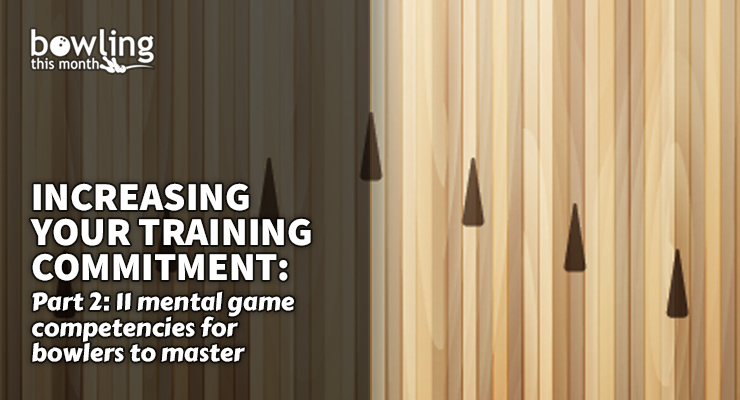Article Contents
- 1. The GMP-SP mental performance competencies model
- 2. Fundamental
- 2.1. Motivation
- 2.2. Confidence
- 2.3. Resilience
- 3. Self-regulation
- 3.1. Self-awareness
- 3.2. Stress management
- 3.3. Emotion and arousal regulation
- 3.4. Attention control
- 4. Interpersonal
- 4.1. Athlete-coach relationship
- 4.2. Leadership
- 4.3. Teamwork
- 4.4. Communication
- 5. Mental health
- 6. Final thoughts
- 7. References
Note: This article is only available to Bowling This Month subscribers.
In this second installment of my series on training commitment, I focus on sports psychology by framing the discussion around the 11 competencies of a newly-developed mental game model called the Gold Medal Profile for Sport Psychology (GMP-SP).
As a coach, one of my most memorable experiences was coaching Team Brazil in the 2015 Pan American Games in Toronto. At the conclusion of the competition, I watched Marcelo Suartz step onto the podium, raise his arms, have the gold medal placed around his neck, and hear his national anthem. It will always remain one of the most special moments I’ve had as a coach. Keep in mind that he achieved this gold medal by defeating a finalist field that included professionals Amleto Monacelli, Dan MacLelland, Francois Lavoie, and Tommy Jones.
Through my lens as the men’s head coach at Webber International University from 2008 to 2011, I saw Marcelo’s growing commitment to sports psychology and the subsequent improvement in critical competition moments over his four years. With continuous work on his mental game over time, he was able to perform at the highest level when it mattered most.
My reminiscence of the Pan American Games in Canada and the important role that sports psychology played aligns well with my topic for this piece. Specifically, in this article, I share a recent contribution from elite sports performance professionals from Canada.
Canada has contributed much to high-level sports performance preparations. For example, the Sport for Life Long-Term Athletic Development (LTAD) model has shaped how countries around the world train athletes over time to prepare for long-term elite success on the world stage. Long-Term Development in Sport and Physical Activity 3.0 was released in 2019 (Higgs et al.). And now, we have the Gold Medal Profile for Sport Psychology (GMP-SP).
The GMP-SP mental performance competencies model
From October 2018 to September 2020, nine professionals reviewed research as well as reflected on their combined 125 years of elite sports research and applied practice experience. The result was the creation of the Gold Medal Profile for Sport Psychology (GMP-SP), which identifies 11 sports psychology proficiencies needed for Canadian athletes to ...
Already a premium member? Click here to log in.


